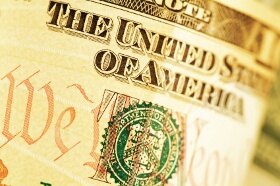The first week of May should be fairly important in determining the US dollar’s performance in the near future due to the policy meeting of the Federal Reserve and plenty of major economic reports, including nonfarm payrolls.
The Fed will announce its decision on Wednesday. While the general consensus is that the central bank will not make changes to its monetary policy, market participants will pay close attention to the accompanying statement. They will be particularly interested to see if the Fed maintained its plan for three interest rate hikes in total this year and what the timing of the next hike will be. Currently, CME FedWatch shows about 70% probability of a rate hike in June. Fed Chair Janet Yellen will speak on Friday, and her speech may also give insights into Fed’s plans.
Experts predict that nonfarm payrolls will show a solid growth in the neighborhood of 194,000. They also predict a small increase of wage inflation and the unemployment rate. It is important to remember that last month forecasters had also predicted decent growth of employment, but the actual reading was a huge miss. It is not impossible for the similar situation to occur this month. Yet it is also good to remember that markets largely ignored the report. This may happen this month as well if employment data will be bad, but Fedâs outlook turns out to be good. Yet in case of a combination of poor data and a dovish statement of the central bank the dollar will likely suffer.
As for other important economic indicators, Automatic Data Processing will release its employment report on Wednesday, giving a hint at what Fridayâs nonfarm payrolls may show. Institute for Supply Management and Markit will report about the services sector on Wednesday as well after releasing manufacturing data on Monday. The Department of Labor will release jobless claims data on Thursday.
News about tax cuts planned by US President Donald Trump can also have impact on markets, though investors became skeptical about his ability to deliver on promises.
Outside of the United States, the second round of the French Presidential election scheduled on May 7 should be an important factor in shaping the marketsâ behavior. If polls continue to show high chances of victory for centrist Emmanuel Macron, then the market sentiment should remain in a risk-on mode. And while that will hurt a bit the dollar as a safe currency, some market analysts argue it should also be beneficial for the greenback as absence of big geopolitical shocks can make the Federal Reserve less cautious and increase chances for monetary tightening by the Fed in the immediate future.
If you have any questions, comments or opinions regarding the US Dollar,
feel free to post them using the commentary form below.



Be First to Comment